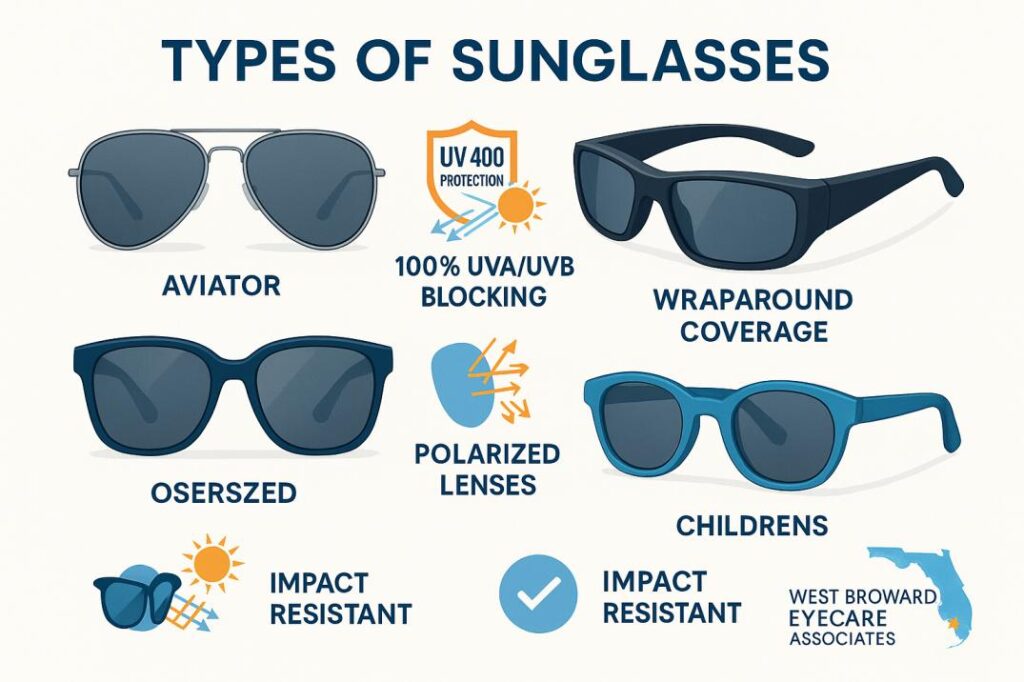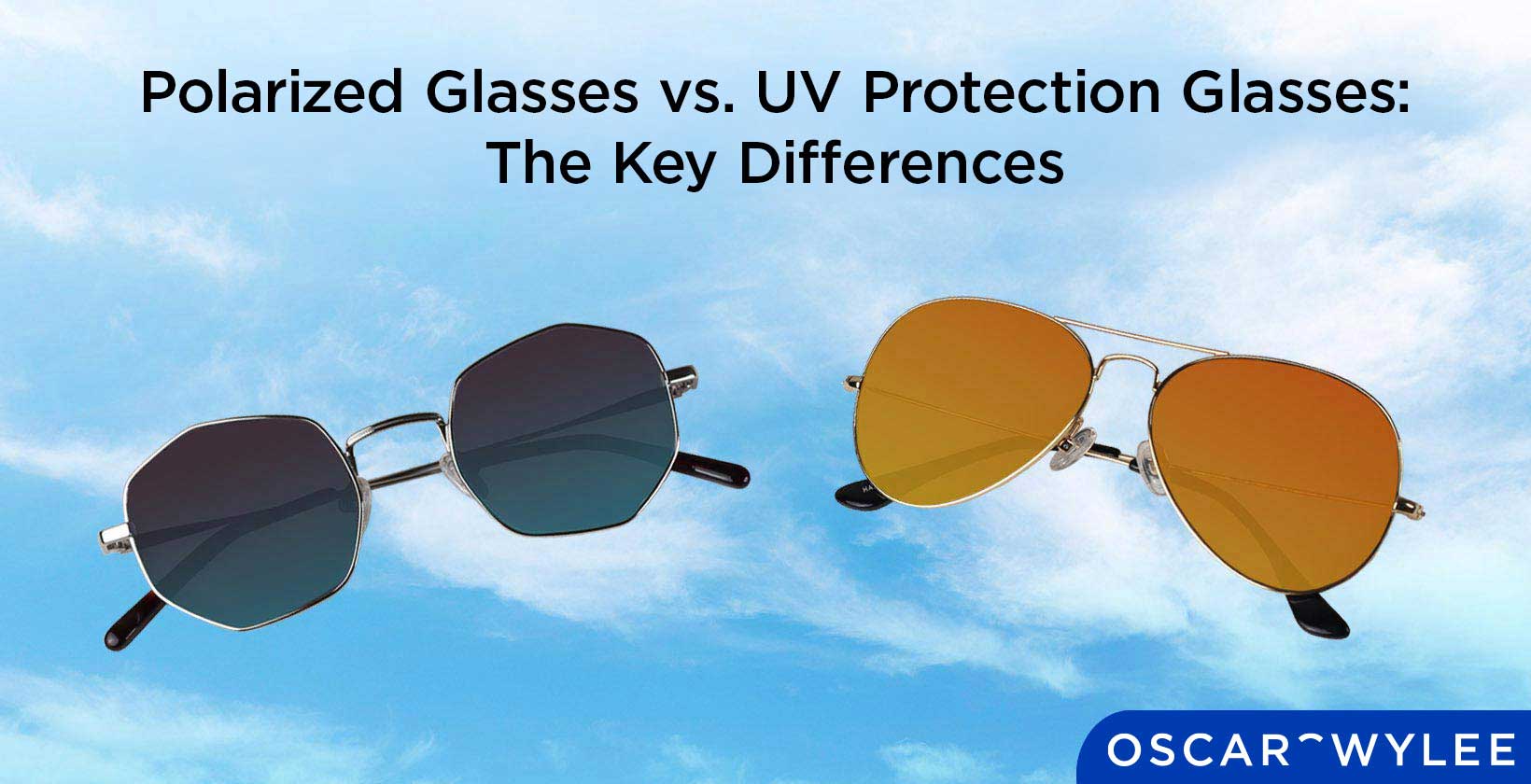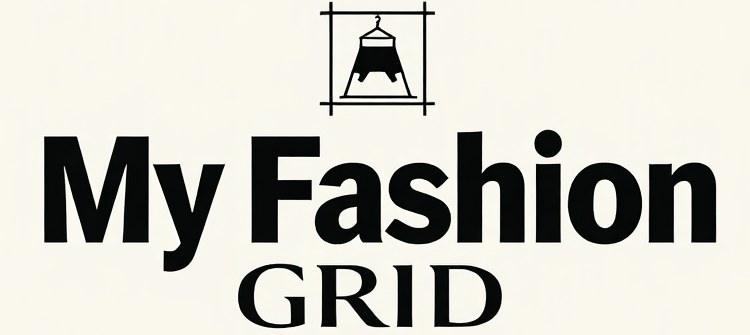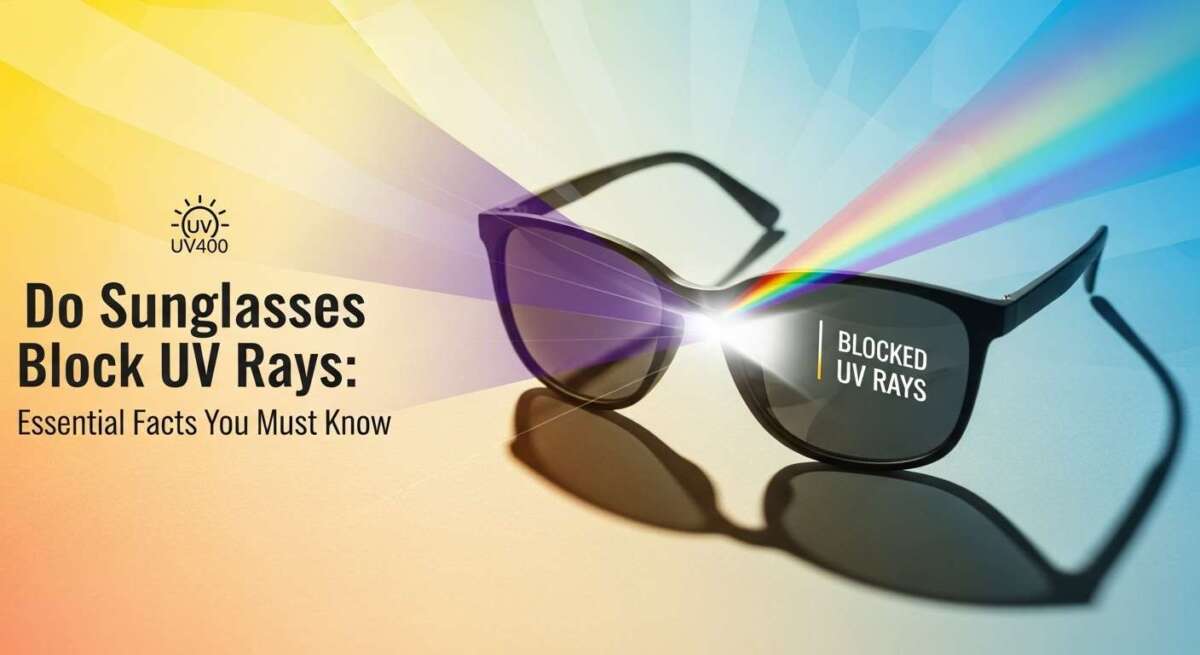Are you sure your sunglasses are really protecting your eyes from harmful UV rays? Many people wear sunglasses thinking they block UV light, but not all do the job effectively.
UV rays can cause serious damage to your eyes over time, leading to problems like cataracts and macular degeneration. That’s why it’s crucial to understand how sunglasses work, what to look for on the label, and how to choose the right pair for your safety.
You’ll discover the truth behind UV protection in sunglasses and learn simple ways to make sure your eyes stay safe every time you step outside. Keep reading to protect your vision today and for years to come!
Uv Rays And Eye Health
UV radiationmainly comes from the sun. Other sources include tanning bedsand some types of lamps. The sun emits three types of UV rays: UVA, UVB, and UVC. UVC rays are mostly blocked by Earth’s atmosphere. UVA and UVB can reach your eyes and skin.
Exposure to UV rays can harm the eyes. It may cause cataracts, macular degeneration, and photokeratitis. These conditions reduce vision or cause pain. UV rays can also damage the cornea and lens over time.
Risks increase with longer exposure without protection. Children and people with light-colored eyes are more sensitive. Snow, water, and sand reflect UV rays and increase exposure. Wearing sunglasses that block 99-100% of UVA and UVB rays helps reduce these risks.

Credit: www.westbrowardeyecare.com
How Sunglasses Protect Against Uv
UV protection standardsensure sunglasses block harmful rays. Look for labels like “UV400” or “100% UV protection.” These indicate lenses block both UVA and UVB rays, which can cause eye damage.
Lens materials and coatingsplay a big role. Polycarbonate and trivex lenses naturally block UV light. Some lenses have special coatings that increase UV protection without darkening the lens.
Lens tint and coloraffect comfort but not UV blocking. Darker lenses do not always mean better UV protection. Clear lenses can block UV if properly coated. Wrap-around frames help block UV rays entering from the sides.
Polarization Vs Uv Protection
Polarized lensesreduce glare from reflective surfaces like water and roads. They make vision clearer and more comfortable.
UV blockingmeans lenses stop harmful ultraviolet rays from reaching your eyes. This helps protect eyes from damage.
Polarization does not block UV rays. It only cuts down glare. Sunglasses can be polarized but still lack UV protection.
| Feature | What It Does | Protects From |
|---|---|---|
| Polarization | Reduces glare for clearer vision | Glare from water, roads, and shiny surfaces |
| UV Protection | Blocks ultraviolet rays | Harmful UV radiation that can harm eyes |
Combining polarized lenseswith UV protectiongives the best comfort and safety. Choose sunglasses that offer both.
Choosing Effective Sunglasses
Check the labelto confirm 100% UV protection. Look for tags like “UV400” or “100% UV protection.” These mean the sunglasses block harmful rays.
Wrap-around stylescover more of your eyes and skin. They help stop UV rays from entering from the sides. This style is great for outdoor use.
Lens darknessdoes not mean better UV protection. Dark lenses without UV blocking can harm your eyes more. The pupil opens wider in dark lenses, letting in more UV rays.
Testing Your Sunglasses At Home
Use a UV flashlightto test your sunglasses at home. Shine the light on a currency notewith a security strip that glows under UV. Place one lens between the light and the note. If the strip does not glow or dimssignificantly, the sunglasses block UV rays well.
Currency security features make this method easy and simple. It helps check if lenses block harmful rays. But this test only shows if some UV is blocked, not the exact level.
| Method | How It Works | Limitations |
|---|---|---|
| UV Flashlight Test | Use UV light and money’s glowing strip to check lens | Does not measure exact UV protection level |
| Security Features on Currency | Currency strips glow under UV light, visible through lens | Only works if currency has UV security marks |
| Professional Testing | Visit optometrist for precise UV protection measurement | Requires special equipment and expert help |
Professional Uv Protection Testing
Optometrists use special devicesto measure UV protection in sunglasses. These tools show how much ultraviolet raysthe lenses block. A precise reading helps to ensure your eyes are safe from harmful UV light.
Consult an eye care expertif you want to check your sunglasses’ UV blocking ability. Experts can test lenses accurately and suggest the best options for your needs. This is important if you spend time outdoors or have eye sensitivity.
Professional testing offers many benefits. It confirms whether your sunglasses provide full UV protection. It helps avoid buying fake or low-quality lenses. Also, experts can recommend the right style for better coverage, like wrap-around framesthat block rays from the sides.
Additional Tips For Eye Safety
Wearing hats and protective clothinghelps shield your eyes and skin from harmful UV rays. Wide-brimmed hats block sunlight from reaching your face and eyes. Long-sleeved shirts and pants made from tightly woven fabrics add an extra layer of protection.
Avoiding peak sunlight hoursreduces your exposure to intense UV rays. The sun is strongest between 10 a.m. and 4 p.m. Staying indoors or in the shade during these hours lowers the risk of eye damage.
Regular eye checkupshelp detect early signs of UV-related eye problems. An eye doctor can spot issues before they become serious. Scheduling yearly exams ensures your eyes stay healthy and protected.

Credit: www.reddit.com

Credit: oscarwylee.ca
Frequently Asked Questions
How Much Uv Do Sunglasses Block?
Quality sunglasses block 99% to 100% of UVA and UVB rays. Look for labels stating 100% UV protection or UV400 for full coverage.
How To Tell If Sunglasses Have 100% Uv Protection?
Check the sunglasses’ label for “100% UV protection” or “UV400. ” Use a UV flashlight test or ask an optometrist for verification. Avoid judging by lens color or darkness alone.
Are Polarized Sunglasses 100% Uv Protected?
Polarized sunglasses reduce glare but do not guarantee 100% UV protection. Always check for UV-blocking labels.
Do Cheap Sunglasses Block Uv Light?
Cheap sunglasses may or may not block UV light. Always check for UV400 or 100% UV protection labels to ensure safety.
Conclusion
Sunglasses can block harmful UV rays if they have proper protection. Always check for labels that confirm 100% UV blocking. Dark lenses alone do not guarantee safety from UV damage. Choose sunglasses that fit well and cover your eyes from all angles.
Protecting your eyes daily helps prevent long-term harm. Wearing the right sunglasses is a simple, effective way to keep your vision healthy. Stay safe and enjoy the sun without risking your eye health.

Marry Christin, a passionate fashion designer and style enthusiast. Fashion isn’t just my profession—it’s my addiction! Along with my expert team, I bring you honest reviews of the latest fashion trends, including shoes, boots, sandals, dresses, and more.

